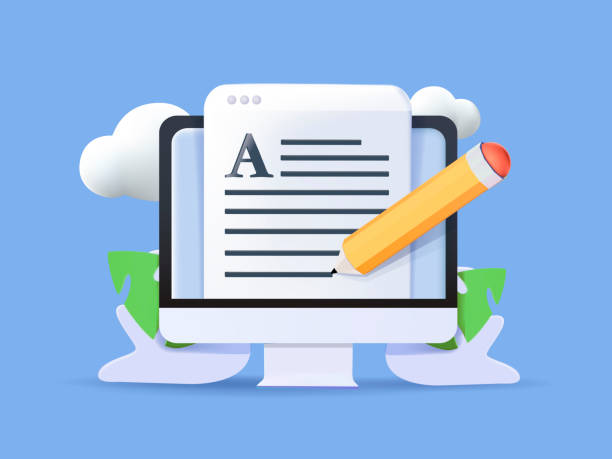Leased Ad Space
Essay Writing for Beginners: Tips and Tricks to Get Started 2023
Published by Adam Knight — 05-09-2023 04:05:04 AM
As a beginner, writing an essay can be a daunting task. It may feel overwhelming to start with, but with the right tips and tricks, you can improve your essay-writing skills and create a compelling essay. In this article, we'll discuss essay writing tips suggested by expert essay writer for beginners and answer some frequently asked questions to help you get started.
Understanding Essay Writing
Before we dive into tips and tricks, let's first define what essay writing is. An essay is a piece of writing that presents an argument or discusses a specific topic. Essays can take various forms, such as narrative, descriptive, or persuasive, among others. The primary purpose of an essay is to communicate a message or idea to the reader.

Types of Essays
There are several types of essays that you might encounter as a beginner. Some of the most common types include:
Narrative essays: These essays tell a story or recount an event.
Descriptive essays: These essays describe a person, place, or thing.
Expository essays: These essays explain or define a topic.
Persuasive essays: These essays aim to convince the reader of a particular viewpoint.
Argumentative essays: These essays argue for or against a particular issue.
Characteristics of a Good Essay
A good essay has several key characteristics that set it apart from a mediocre essay. Some of the essential characteristics include:
Clear and Concise: A good essay is easy to read and understand. It should be written in simple language that is free of jargon and technical terms.
Coherent and Cohesive: A good essay has a clear structure and logical flow. Each paragraph should flow smoothly into the next, and the essay should have a clear introduction, body, and conclusion.
Originality: A good essay presents original ideas and arguments. It should not merely rehash the same old arguments that have been made before.
Evidence-Based: A good essay is based on evidence and facts, not just opinion. It should be well-researched and supported by credible sources.
Planning Your Essay
Before you start writing your essay, it's essential to plan out what you want to say. Here are some tips for planning your essay:
Understanding the Essay Prompt
The first step in planning your essay is to understand the essay prompt. Read the prompt carefully and make sure you understand what is being asked of you. If you're unsure about anything, ask your teacher or professor for clarification.
Brainstorming Ideas
Once you understand the prompt, the next step is to brainstorm ideas. Write down everything that comes to mind, even if it seems unrelated to the prompt. You can organize your ideas later.
Outlining Your Essay
Once you have your ideas, it's time to organize them into an outline. Your outline should include an introduction, body paragraphs, and a conclusion. Each section should have a clear purpose and be logically connected to the other sections.
Writing Your Essay
Now that you have your outline, it's time to start writing your essay. Here are some tips for writing each section:
Writing the Introduction
The introduction is the first part of your essay that the reader will see. It should be engaging and capture the reader's attention. Your introduction should also provide a clear thesis statement that outlines the main argument or point of your essay.
Developing the Body Paragraphs
The body paragraphs are where you present your arguments and evidence. Each paragraph should focus on one main idea and be well-supported by evidence. Make sure you use transitions between paragraphs to make your essay flow smoothly.
Writing the Conclusion
The conclusion is the final part of your essay, and it should summarize your main points and restate your thesis statement. Your conclusion should leave a lasting impression on the reader and tie together all of the arguments you presented in the body of your essay.
Revision and Editing
Once you have finished writing your essay, it's essential to revise and edit your work. Here are some tips for revising and editing your essay:
Reviewing Your Essay
The first step in the revision process is to read through your essay carefully. Look for areas where you can improve the clarity or organization of your writing.
Checking for Grammar and Spelling Errors
Once you have reviewed your essay for clarity and organization, the next step is to check for grammar and spelling errors. You can use online tools like Grammarly to help you catch errors.
Getting Feedback
After you have revised and edited your essay, it's a good idea to get feedback from someone else. Ask a friend, family member, or teacher to read through your essay and provide constructive feedback.
Conclusion
Writing an essay can be a challenging task, especially for beginners. However, with the right tips and tricks, you can improve your essay-writing skills and create a compelling essay. Remember to plan out your essay, write a clear thesis statement, and use evidence to support your arguments. Lastly, make sure to revise and edit your work carefully before submitting it. By following these tips, you'll be well on your way to becoming a successful essay writer. So, if you need to "write my essay," just remember to follow these tips and you'll be able to produce a great piece of writing.
About Adam Knight
This member hasn't told us anything about themselves yet! Encourage them to do so!

